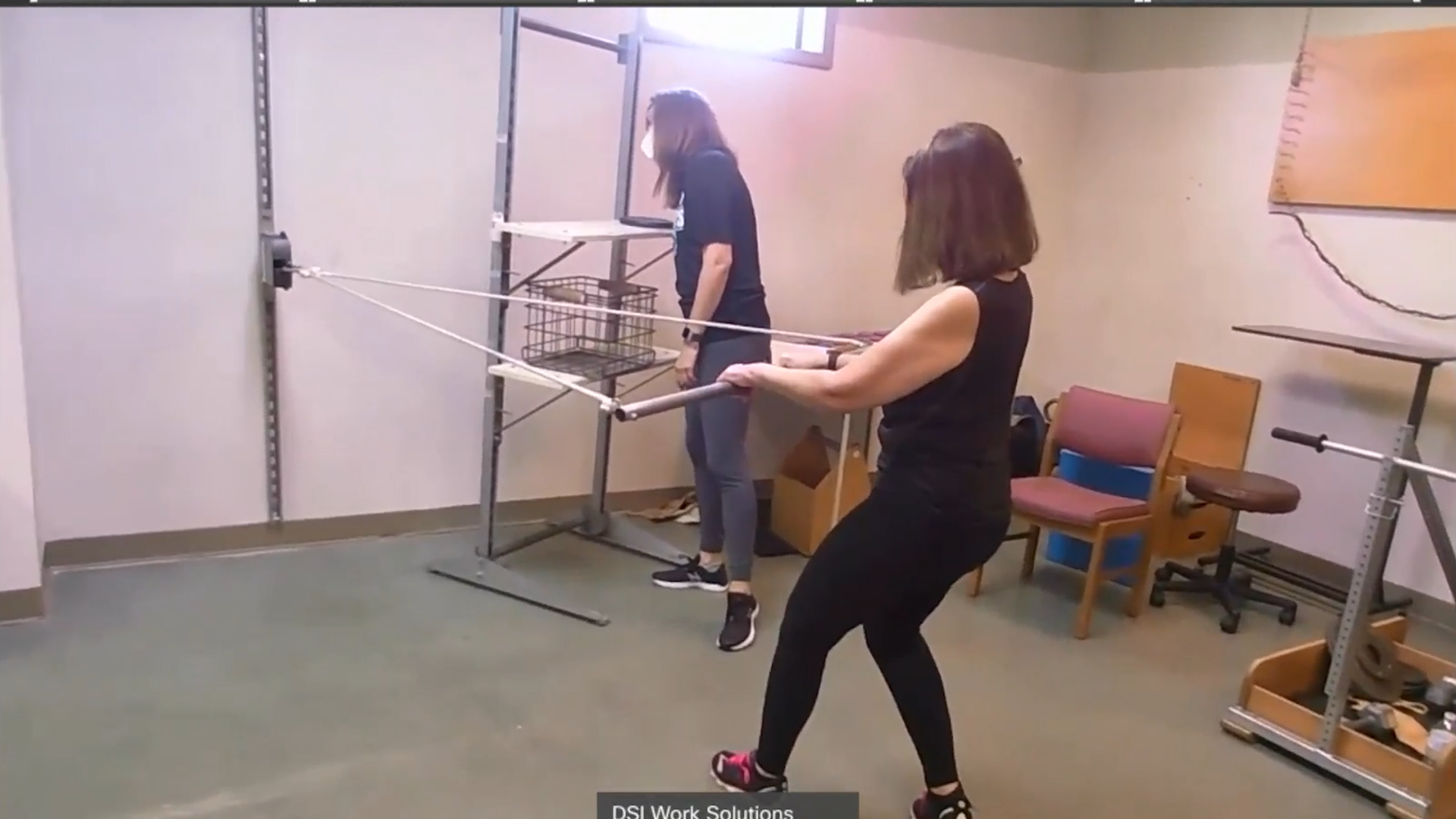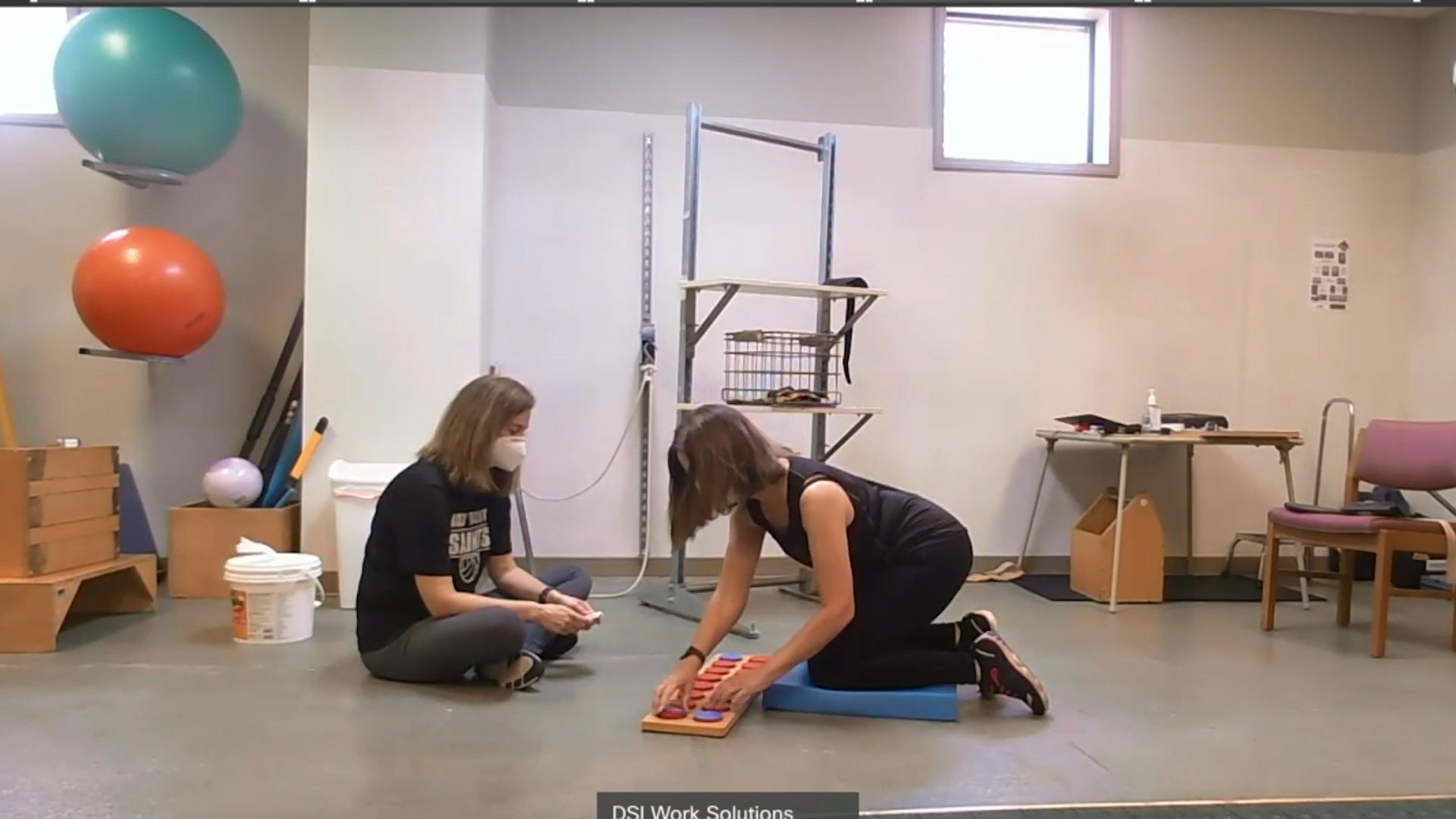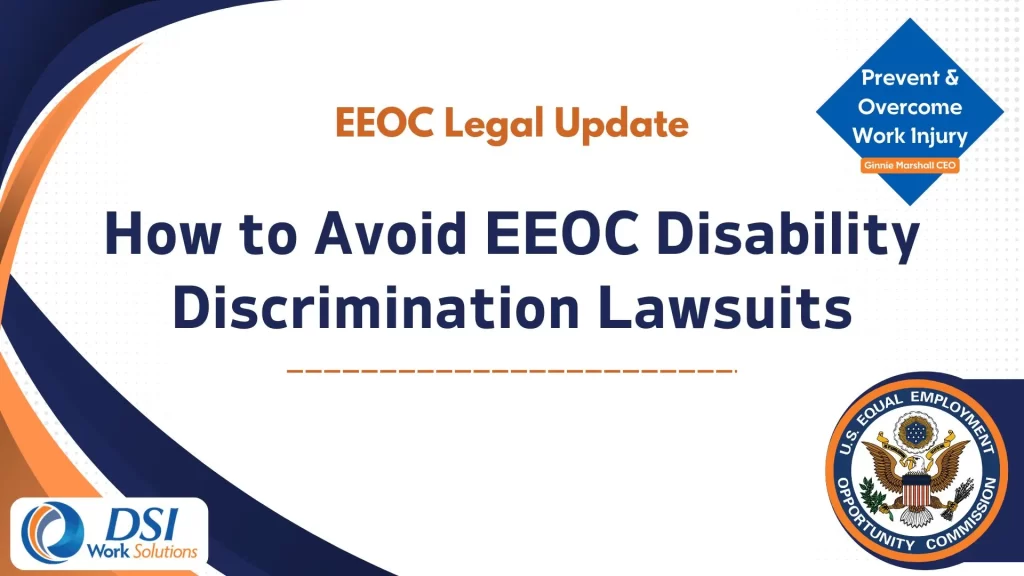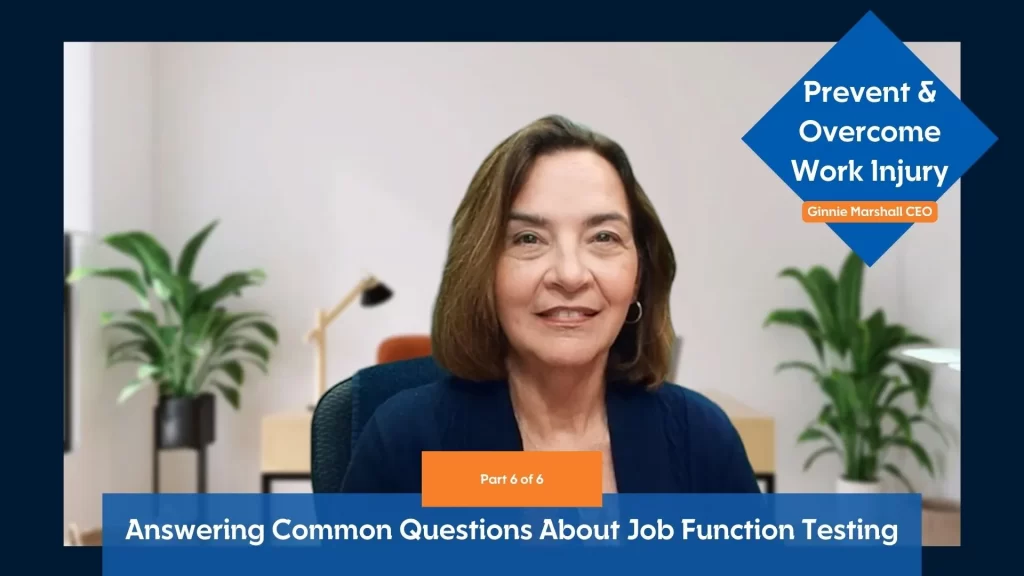Introduction
Functional Capacity Evaluations (FCE) are a critical tool in therapy that helps assess an individual’s ability to perform various physical tasks. This is our fifth article in our educational series, discussing the nuanced aspects of conducting effective FCEs. FCEs play a pivotal role not just in understanding a client’s physical capabilities but also in shaping their therapeutic journey
Our focus here is to unravel some common challenges that arise during these evaluations and to offer practical solutions. Whether you’re a seasoned professional or new to the field, this insight aims to enhance your approach to FCE, ensuring you provide the best possible assessment for each individual you encounter.

Navigating Fear in FCE
In the realm of FCEs, fear is a frequent yet often overlooked barrier in clients. This fear can stem from various sources – a dread of re-injury, anxiety over losing benefits, or simply the uncertainty of pushing past previously set physical limits. As evaluators, it’s crucial to recognize and address this emotional hurdle. Our approach must be empathetic and supportive, creating a safe space where clients feel comfortable expressing their fears. By doing so, we can help them gradually overcome these apprehensions, enabling them to give their best during the evaluation.
The key to mitigating fear lies in building trust and demonstrating a consistent, patient approach. Introduce each task with clear explanations and reassurances about safety and the purpose of the evaluation. Encourage clients to voice their concerns and take them into account when planning the assessment. This personalized approach not only helps in easing their fear but also fosters a more accurate and representative assessment of their capabilities. As evaluators, our goal is to transform the evaluation experience from one of apprehension to one of empowerment, guiding our clients towards a truthful representation of their functional capacity.

Building Trust in the Evaluation Process
Trust forms the cornerstone of any FCE, yet it’s often a delicate aspect to manage. Clients may come with pre-existing doubts, shaped by previous experiences with healthcare professionals, employers, or insurance companies. These experiences can create a sense of skepticism or unease about the evaluation process. As evaluators, understanding and acknowledging these trust issues is the first step in addressing them. Our role extends beyond mere assessment; it involves being an empathetic listener, a neutral party, and a source of reliable information. By clearly explaining the evaluation process, its objectives, and how the results are utilized, we can begin to dismantle the barriers of mistrust.
Maintaining trust throughout the evaluation process is equally vital. This means being consistently transparent, objective, and communicative. Encourage clients to share their concerns and be responsive to them. It’s important to remember that trust is not just about what we say but how we say it and how we act. Our demeanor, respect for the client’s boundaries, and commitment to their safety play a crucial role in sustaining trust. When clients feel understood and respected, they are more likely to engage honestly in the evaluation, leading to outcomes that truly reflect their functional capabilities.
Addressing Lack of Desire to Return to Work
We occasionally encounter clients who exhibit a clear lack of desire to return to their job or employer. This can manifest as reluctance to participate fully in the evaluation or outright refusal of certain tasks. Understanding the underlying reasons for this attitude is key – it could be due to dissatisfaction with their job, a negative workplace environment, or personal health concerns. As evaluators, our approach should be non-judgmental yet probing, aiming to understand their perspective while gently guiding them towards an honest assessment of their capabilities.
Professionalism in documentation and client engagement is crucial in these situations. It’s important to document not only the client’s physical performance but also any statements or behaviors that indicate their reluctance to return to work. However, documentation should be objective, focusing on observed facts rather than assumptions or interpretations. Simultaneously, maintaining a supportive and open communication channel with the client helps. Encourage them to express their concerns and be clear about the evaluation’s objective: to assess their functional capacity in a fair and unbiased manner. This approach helps in achieving a more accurate evaluation, respecting the client’s sentiments while fulfilling our professional responsibilities.

Identifying and Managing Disingenuous Behavior
Disingenuous behavior in FCEs presents a unique challenge. It’s characterized by clients who exaggerate or feign limitations to manipulate the outcome of the evaluation. Identifying such behavior requires a keen eye and professional judgment. As evaluators, we rely on our experience and knowledge of injury pathology and functional limitations to detect inconsistencies in a client’s performance. These inconsistencies might manifest as a mismatch between reported symptoms and observed physical abilities, or as fluctuating effort levels that don’t align with typical injury responses. It’s crucial to observe and document these discrepancies objectively, as they are key indicators of disingenuous behavior.
Handling these situations demands tact and adherence to professional standards. It is important to avoid confrontation; instead, focus on conducting the evaluation as consistently and objectively as possible. Document all observations meticulously, including specific instances where the client’s reported experience does not match their demonstrated capabilities. Remember, our role is not to accuse or confront but to assess and report with accuracy. This approach ensures that the evaluation remains fair and unbiased, providing valuable insights into the client’s true functional capacity, regardless of their initial presentation.

Learn and Grow
Functional Capacity Evaluations often present challenges such as client fear, trust issues, a lack of desire to return to work, and disingenuous behavior, but with the right strategies, these can be effectively managed and overcome. To continue your journey in mastering FCE, I invite you to explore our comprehensive FCE Independent Learning course. Designed for the busy professional, this course offers 6 hours of on-demand video content, a year-long access, and includes our exclusive FCA Productivity Suite. Not only does it deepen your understanding, but it also equips you with practical skills for immediate application. By completing the course and the accompanying quiz, you earn 7 credit hours and a certification, marking your advanced proficiency in FCE.
Dive into this valuable learning opportunity by visiting our website and setting up a free account. Start your first lesson without any cost and integrate this essential knowledge into your daily practice. Your professional growth in FCE directly enhances the quality of care you provide, reflecting your commitment to excellence in therapy. As you progress, stay tuned for more enriching content and opportunities to expand your expertise in the dynamic field of Functional Capacity Evaluations. Your path to becoming a more skilled and insightful practitioner starts here.












.webp)